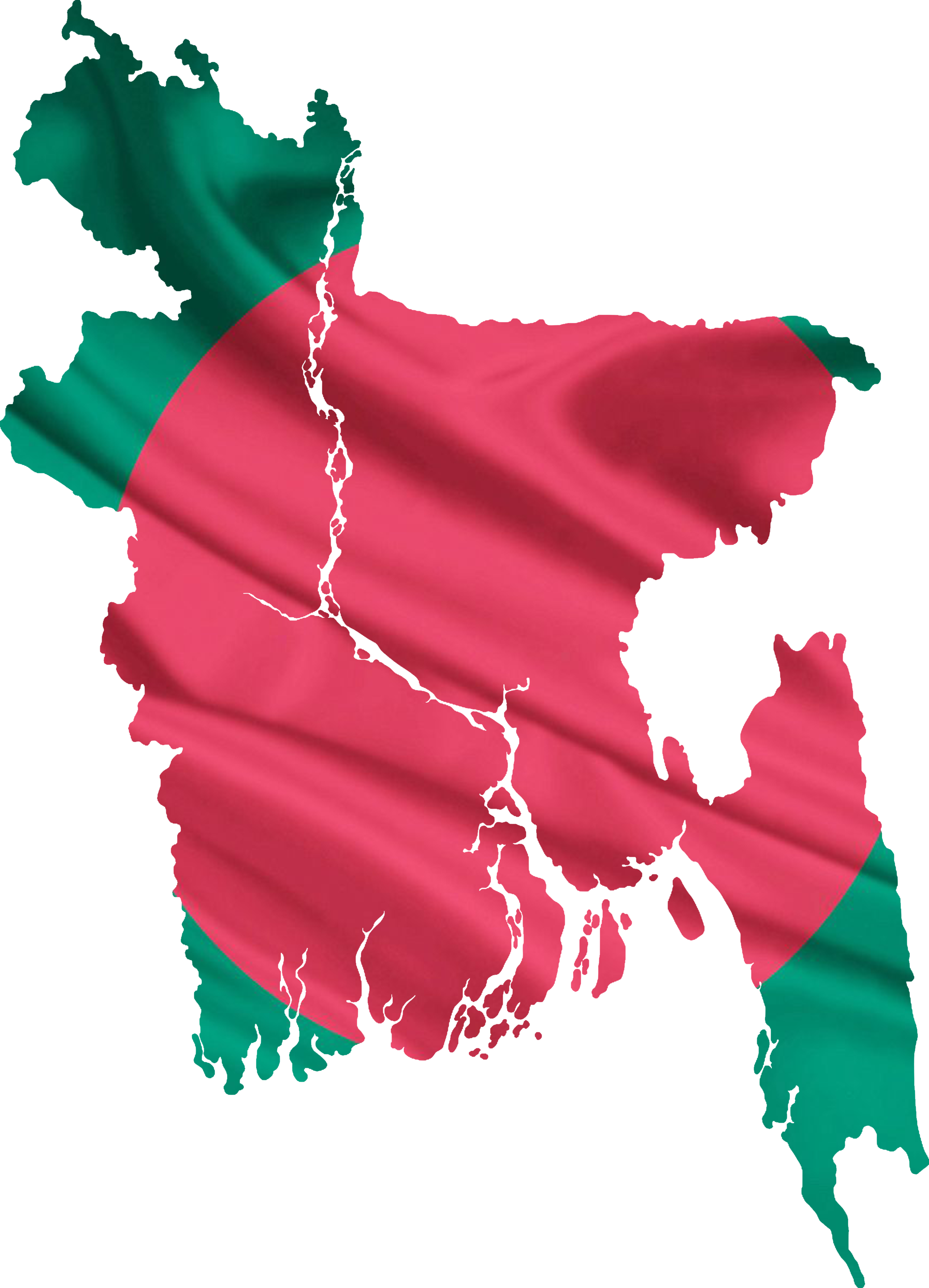116 - Bye Bye Bangladesh
MY HIATUS WAS OVER. Time to get back to the top of the world. Parting was such sweet sorrow… and a major pain in the groinage. My flight from Dhaka to Kathmandu was scheduled for liftoff at 12:45 p.m. I arrived at 10:30 a.m. The plane took off at 9 p.m. I stared at the departure screen, waiting for “Check In” status. I lingered near the counter to observe the GMG staff manning their positions. Suspicions blossomed. I heard a gentleman on the flight discussing the situation with an airport employee. He was directed to an office. After ten minutes, I followed. I met him coming down the stairs and learned we’d been delayed six hours. I, too, went to the office and inquired. It was now scheduled to leave at 7 p.m. My new friend and I harped on like grumpy old codgers at the barbershop. He’d given the airline his contact info and was none-too-pleased at the failure to notify. I didn’t have that excuse but assumed updating the “Departures” monitor required minimal effort.
I discovered a second GMG office in the terminal. Trust but verify, no? I inquired within and was told the decision was made the night before. Of course, it had. I asked if it were possible to check-in, so I could enter the gate area and enjoy the luxury of internet. They agreed. I then paid to access the executive lounge (I'm worth it) where I watched television and surfed the web with impunity. You haven’t lived until you’ve spent eight hours in the executive lounge at Dhaka International Airport.
A final punch in the balls came when the flight was delayed an additional half-hour, which in Bengali translates as two hours. This time it was a VIP departure. All runways were shut down until liftoff. My one-and-a-half-hour flight turned into a ten-hour extravaganza. Yes.
I left Bangladesh. Bangladesh never left me. The country's inception was a baptism by fire and included some of the most heinous atrocities ever perpetrated on humans by humans. The outside world knows little of it. Independence from Great Britain, and then Pakistan, birthed a whole new set of troubles never to be resolved.
Hardship is woven into everyday reality. Cyclones, floods, arsenic-contaminated groundwater, civil unrest, abject poverty, and government corruption round out the highlights. Bangladesh is tragedy, paradox, contradiction, despair, adamantine pride, enigma, and hope alloyed within the forge of history. Many go about their days in subdued desperation, though most don't seem to know they’re desperate or that Bangladesh is among the world’s poorest countries. I spoke to people standing on a veritable mound of garbage expounding its virtues and natural beauty without a hint of irony or sarcasm. I found this neither absurd nor pitiful, but strangely uplifting.
Education is king, a path to personal enrichment treasured by the vast majority I encountered. Many attend some form of higher educational institution. As a visitor, you’ll be asked “Where’s your motherland”, “Are you married”, and “What’s your certification (i.e. level of education)”, probably in that order. The country’s history might be a blind spot to the rest of the globe, but not to its people. Most have an acute awareness of Bangladesh’s turbulent past.
Patriotism appears to run deep, at least with the “mainstream” citizenry. The eastern hill tribes have a different view. Bangladesh isn’t theirs, they’re still waiting for a homeland. Marginalization in the developed world is one thing. Imagine being disenfranchised in a globally disenfranchised state? These folks know they’re desperate even without the constant reminders from the federal government.
I experienced warmth and friendliness on a level I hadn’t anticipated, a result that further endeared me to that place and those people. I laughed, cried, cheered, fumed, and cursed aloud all in the same day, often in the same hour. The plight of Dhaka’s poorest and the dismal state of street sanitation was emotionally and physically overwhelming at times. Autorickshaws were a disorientating, dust-laden, suffocation festival while local bus transport was an exercise in space-time management, though the executive-class long-distance versions were surprisingly comfortable. More than once, I flirted with escape. More than once, I relented. Perseverance paid off. Those memories are some of my fondest.
Though the country is predominantly Muslim, it was never in my face. I might have been questioned as to my religious denomination. Not once did anyone attempt conversion or even espouse Islam’s virtues. An occasional ardent glare from a young male or two? Sure, but this was the exception, not the rule. With each passing day, I worried less about potential fundamentalist backlash to the infidel interloper and no longer dreaded solo travel. Conversations with strangers would, more often than not, lead to teatime. This unabashed hospitality took me by surprise, and, at first, aroused suspicion. Suspicions dissolved when I came to understand curiosity and congeniality toward visitors as a cultural artifact.
It ain’t all peaches and sunshine. Some will squeeze every penny from you, while others might treat you with an indifference afforded a stray dog, though not to the level of traditional tourist traps. Also, I am a man (or non-menstruating person to the uber-woke lunatics). A western female might have a vastly different experience. Solo muchachas are something of a unicorn. Most locals are escorted by family members. Women are very much in the background, a woman’s status nothing to brag about. Not so many years ago, it finally became illegal to throw acid at them. Yeah, progress. Much of this subjugation is, like it or not, rooted in Islam. Full burkas aren’t uncommon. Things are changing as the more affluent are shunning tradition more and more. And then there’s the madam prime minister, Sheikh Hasina, who’s been in office since 2009. Have I mentioned the contradictions?
Bangladesh’s population size is staggering. If you dismiss the city-states of Malta, Monaco, and Singapore, it becomes the most densely populated country on the planet. Lots of people. Lots of impact. Natural gas powers a substantial percentage of vehicles, and it was the first government to ban plastic bags. Sewage trickles through Dhaka’s streets, but plastic bags are illegal. I wasn’t sure what to make of that, then I dug deeper. Bags clog storm drains. Bangladesh gets up to five meters of rainfall a year. Sewage might run in the streets, but without clogs, it’s not floating in them.
Keep your eye on the tiger. They hold the key, at least as a symbol. For now, the Sundarbans’ magical mangrove marauders play a part in their own protection. They do this by scaring the shit out of folks. The feline’s elusive nature and swampy isolation bolster their defense. The efforts of the Sundarbans Tiger Project have gone far toward preserving one of the planet’s most majestic creatures, but the continuing battle is uphill. Human encroachment, prey depletion due to poaching, and a legendary, if not somewhat misplaced, fear have taken their toll. While I was there, I read an article about a tigress clubbed to death after seeking refuge in a village hut. The killing was retaliation for a villager’s death. The cat was placed on the roof of the dead man's home as a signal to other tigers. Stay away or else.
Optimism requires sustained cultivation. If tigers can survive and their habitat protected, maybe there’s hope. For the tigers. For the people. Save the cats and maybe Bangladesh can save itself from itself. They shouldn’t have to go it alone. Outside assistance is essential. Will it materialize in time? This isn’t just Bangladesh's fight. If this country can be rescued from the depths of despair and desolation, perhaps humanity can atone for the damage done. Save Bangladesh, and maybe we save ourselves.
********
Ever wonder what it would be like to cruise the streets of Dhaka at night in an autorickshaw? Wonder no more.




